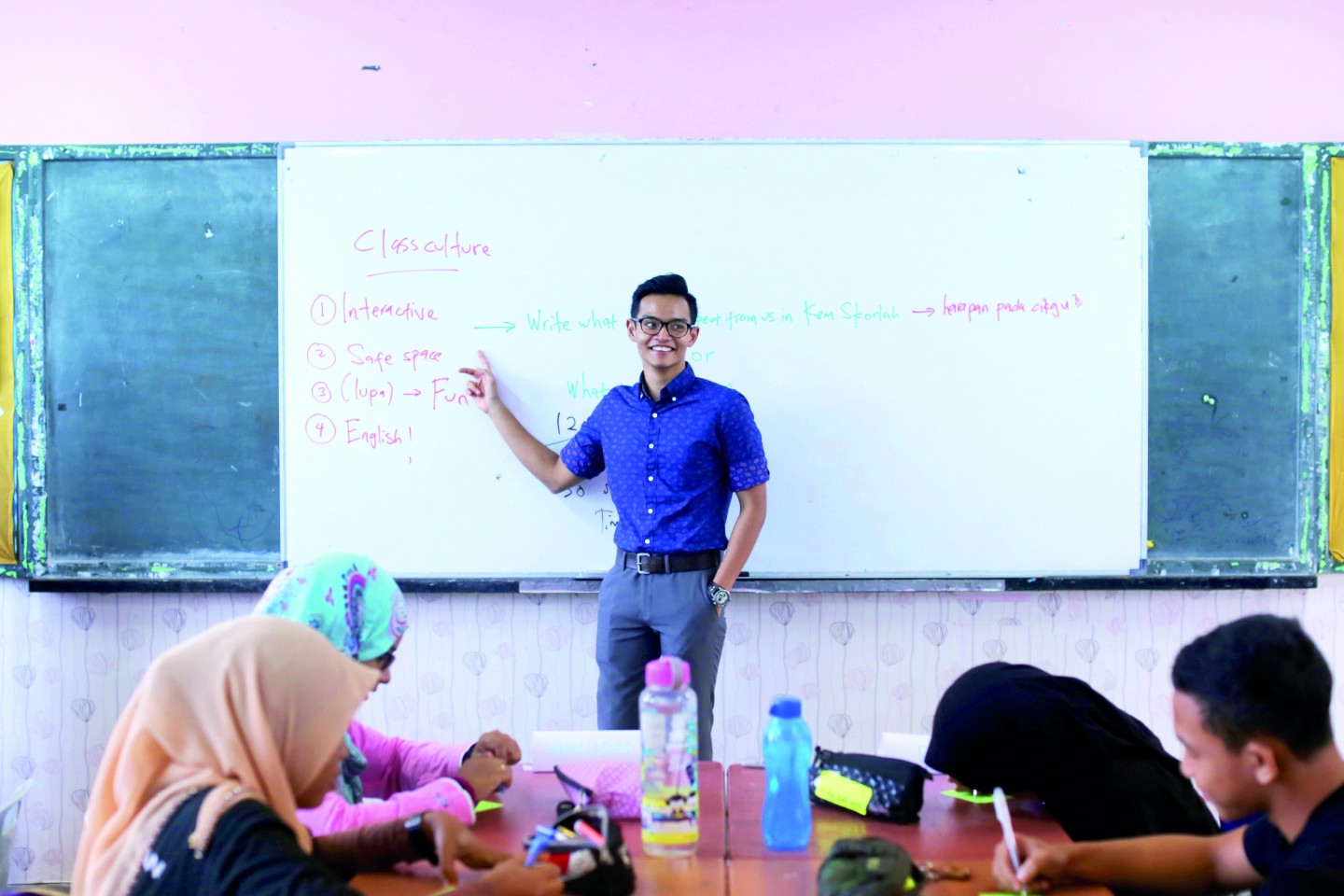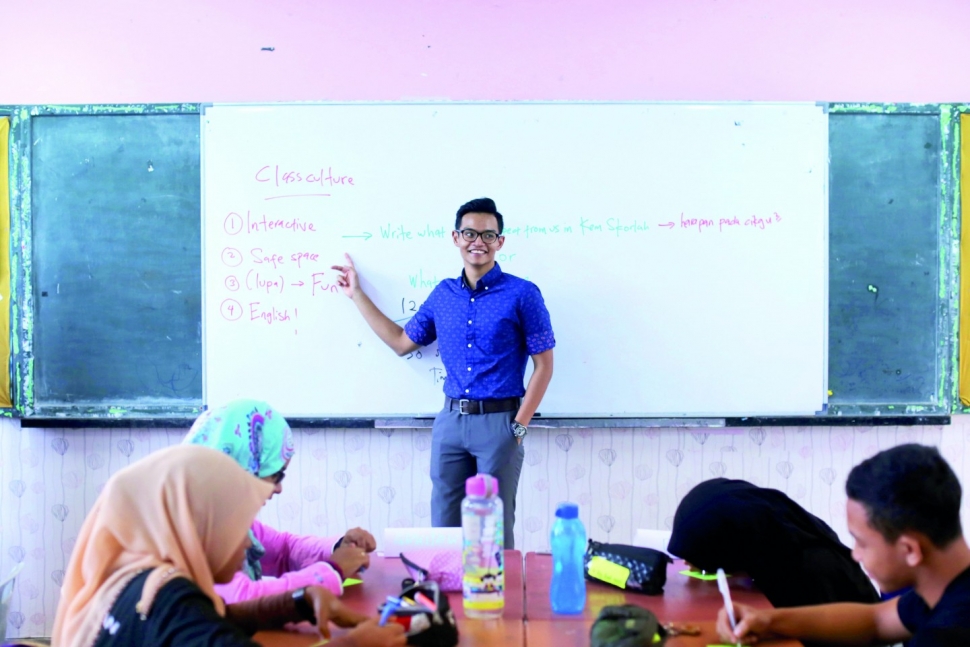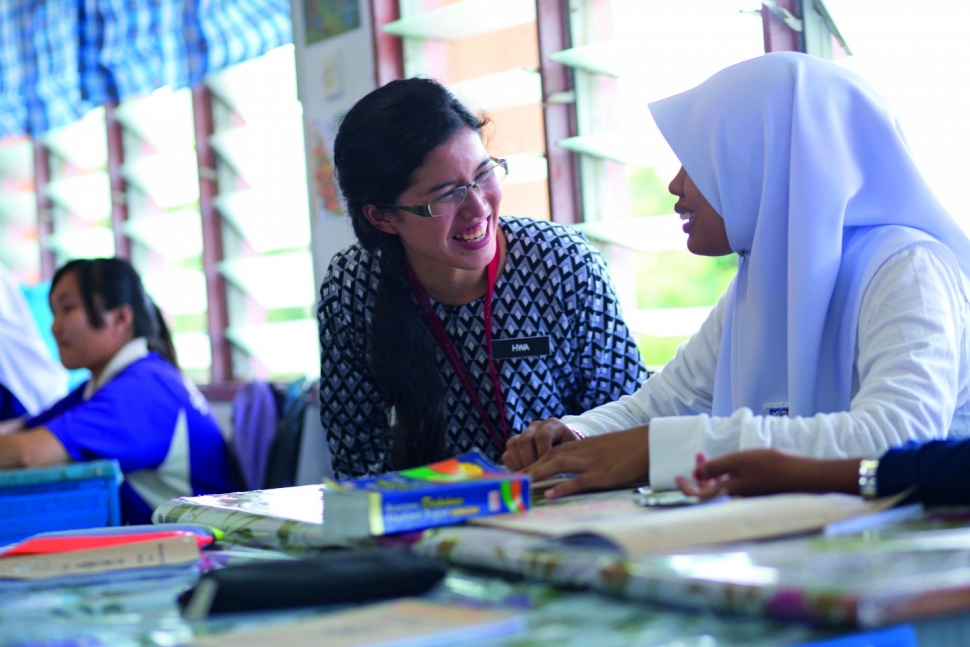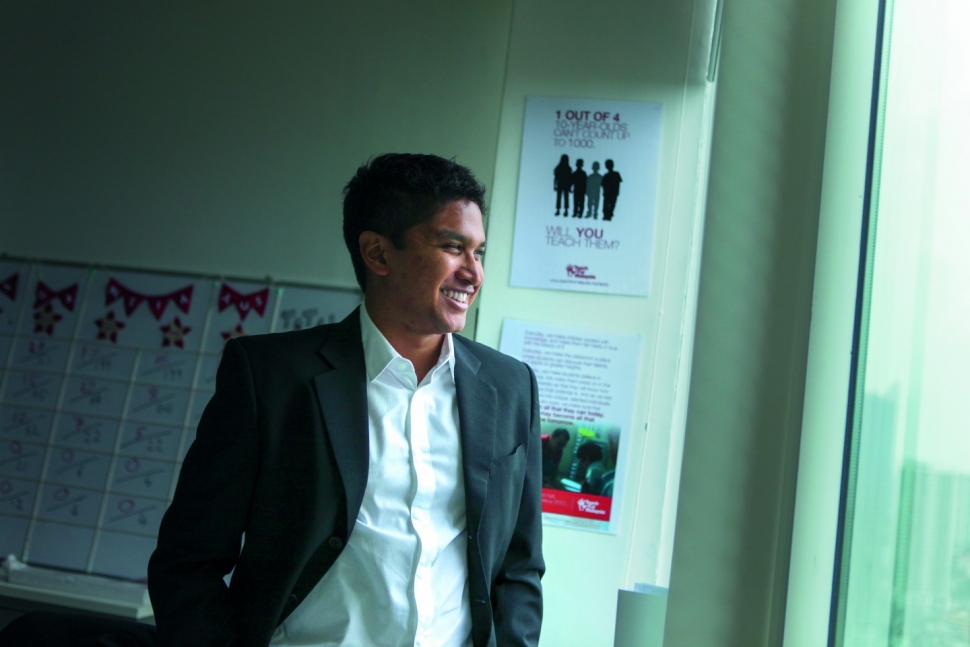Recruiting bright young minds to teach for Malaysia


Raymond Prakash Vijaendreh got his first taste of teaching when he helped tutored his cousin. Originally from a rural area of Sarawak, Romeo was struggling with his studies until he came to live with Raymond's family in Kuching, the state’s capital city. With access to better education and an encouraging support system, Romeo would graduate from secondary school with good grades. To Raymond, it brought home the point of educational opportunities for all.
“This left a lasting impact on me. I wanted to be part of the solution, and to give back to my community and try to influence lives less fortunate than mine. Teach For Malaysia was a natural choice because it offered me a way into the education sector. I strongly believe that there aren't many better ways to serve than being a teacher,” reflects Raymond.
Raymond is one of the fellows of Teach For Malaysia (TFM), an independent, not-for-profit organisation that recruits the brightest graduates, trains them and places them in high-need schools in Malaysia for a two-year teaching programme. It is a nationwide movement aimed at eliminating education inequality in schools, while providing a solid leadership programme for graduates.
Teach For Malaysia was founded by Dzameer Dzulkifli and Keeran Sivarajah, both colleagues at PricewaterhouseCoopers. Inspired by the successes of initiatives like Teach For America and Teach First in the UK, they started developing the framework for the Malaysian social enterprise with help from the Teach For All network.
The first batch of fellows was sent out in 2012; TFM currently has 240 fellows and alumni, in over 80 schools in nine states, impacting roughly 36,000 students in Malaysia.
Bright, passionate and inspired to be agents of change, TFM fellows are driven, not only to impart knowledge and increase achievement, but to inspire students to discover their passion for learning.
A mechanical engineering graduate from the University of Colorado, Raymond teaches Form 4 and 5 Physics, Form 2 English and Form 1 History at a school in Subis, Sarawak. Besides teaching, he has set up an after-school literacy programme using his students’ interest in football to motivate them. He notes a modest but gradual improvement in their English language scores after a year in implementation.

“I would like to instil a sense of curiosity and joy of learning. Students must be empowered to not only learn but take control of their learning. As clichéd as it may sound, change must start from the bottom, and if we want to develop an informed and mature society, schools are the place to start,” he says.
In order to facilitate its programmes, TFM looks for high-performing graduates and professionals from all disciplines. The essential qualities that they look for in potential fellows encompass a whole range of leadership competencies, including respect, humility, and an ability to work in a team and in different communities.
“The key differentiator that we have seen is perseverance. Did you lead a team? What results did you deliver? Have you faced an obstacle and did you do everything possible to solve it and not give up? Because when it comes to a passion in making a difference in people's lives, everyone is passionate. But who is the one who is going to go the extra mile to do what is needed?” asks Dzameer.
Recruits are then put through an intensive two-month training, where they are taught pedagogy methods as well as leadership training. This is followed by KemSKORlah, a three-week practical course, where the fellows will be observed and mentored as they engage in real-classroom situations.
For some, the two-month pre-service training is not enough to prepare them for the realities of teaching, whether it is dealing with unruly students, motivating them to study or even dealing with their colleagues. With a more stringent selection and training process, TFM's dropout rate fell from 10 percent to 4 percent in its last intake. For the current cohort, a penalty will be imposed if a fellow does not finish the two-year teaching term. “We encourage a lot of self-reflection before they even start. We make the two-month pre-service training a lot harder. They have to own the process,” says Dzameer.
Throughout their teaching years, the fellows will receive mentorship and on-the-job training on managing students, dealing with peers and problem-solving. As part of the Fellowship, all the fellows are given a full scholarship for a teaching qualification accredited by the Ministry of Education.
After the two-year teaching programme, a few fellows stay on as teachers, while others go on to pursue other career options. TFM helps facilitate the onward process, tying up with corporate partners to provide opportunities and a growing network for their alumni. Currently, 30 percent of TFM's alumni have stayed on in the classroom.

Alumnus Jessie Chew continued in the education sector as the Education Manager of Eco-Schools Programme at WWF Malaysia, which works with schools to become more sustainable. “Professionally and personally, I have learnt that there are a lot of things that can be done without being at the top. We need more people on the ground to make change happen. There is a lot of possibility just waiting for us to explore, and it is extremely important to collaborate with others and multiply the effects of change,” she says.
At the recent GRADMalaysia Graduate Recruitment Awards 2015, Teach for Malaysia won the Best Management Trainee/Graduate Programme. “The true magic of TFM happens after the training, for both the alumni and the students. You will see the impact in the next 10 to 15 years. We are very young, and still in our early days,” says Dzameer.
Photos courtesy of Teach For Malaysia





